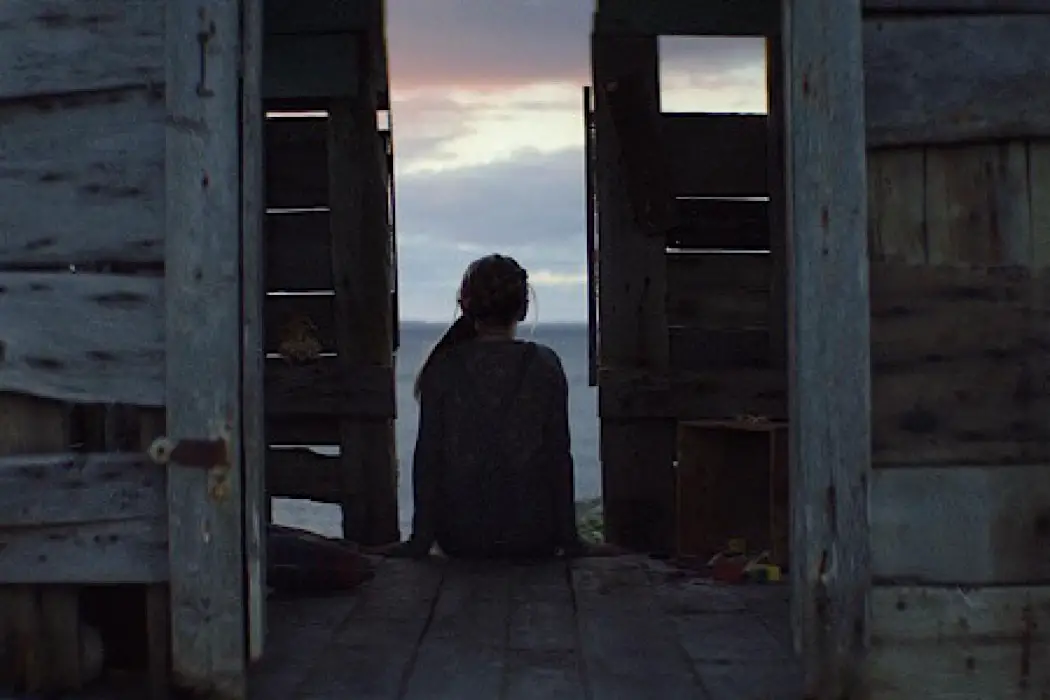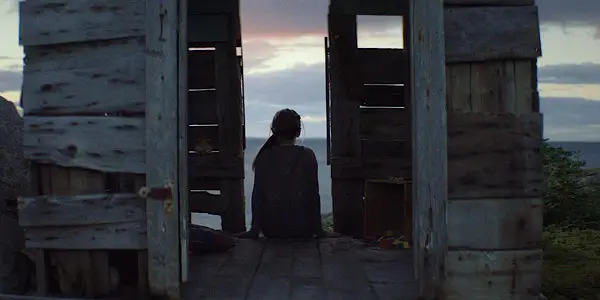Toronto International Film Festival 2023: THE KING TIDE Interviews

Kristy Strouse is the Owner/Editor in Chief of Film Inquiry,…
One of the biggest surprises and most compelling features I saw at this year’s fest was Christian Sparkes‘s The King Tide. I was able to sit down with the director and star Clayne Crawford and Alix West Lefler about the interesting dynamics at play, what was alluring about the story, and the experience as a whole.
This interview has been edited for clarity.
This is Kristy Strouse with Film Inquiry: I was wondering, was there something about the script – Christian – that made you say: I have to make this?
Christian Sparkes: There were a couple of elements that intrigued me. The fact that it was shot in Newfoundland, which is my home, was intriguing. I’ve shot three features in Newfoundland before. When I was younger, I couldn’t get away from Newfoundland fast enough, but as I’ve gotten older, I realize it’s the one thing that makes me unique and interesting. It has a unique and interesting culture that the world doesn’t really know about. So bringing it out to the rest of the world is always intriguing to me. Additionally, I love the idea of the “Paradise Lost” aspect of the film, where human beings are given something beautiful and they corrupt it in the process. Watching the same people suffer the consequences of that decision is something I love in film and literature. So combining that idea with my love of Newfoundland was a great opportunity.
I definitely understand that, was the isolation of the island especially helpful/intriguing here?
Christian Sparkes: Yes, I think the isolation of the film really informs the story. When you have people living remotely with no way on or off the island, it inherently builds tension. Being from an island myself, I know it very well. So I was happy to use it as a dramatic device for the story.
And Alix, what was it like playing such an enigmatic character like this?
Alix West Lefler: It was a really good challenge for me, especially the magical side of it. I’ve never played a character like that before, so I thought it was going to be super cool. And it was, it was an awesome experience.
Did either of you have any kind of collaboration with Christian on the characters? Did they change during the process at all?
Clayne Crawford: Yeah, we all kind of hit the ground running. You know, as with indie film, the one thing you never have a lot of is time, or even resources for that matter. So, we all kind of knew that we were going to have to jump in with both feet. I was quite concerned that the film was going to hinge on a child and that performance so I was fortunate that I was able to see her audition tape. It was all put to ease quite quickly after that. Then once we arrived, kind of going back to what Christian was saying, it is an island and there are no distractions. We’re kind of isolated together and we all kind of formed our tribe immediately, and that tribe became a family. Alix is such a grounded human being and that just naturally translates into a grounded performance. She would just show up and be present. She has such a great work ethic, so she was always extremely prepared.
When you have those things in place, it allows you to show up and have fun, and the fun part is really dissecting the material itself, the scene, the relationships and how we make it just the best that it can be. We want it to have meaning, be natural, and make sure we are telling the story properly. Sometimes that’s with fewer words, then maybe even might be on the page. And Alix was really wonderful, you know about kind of getting into the space and us figuring out what that movement was. It goes back to her having a great relationship with her mother and father and me having a great relationship with my children. Then Christian kind of became our support system throughout that process and allowed us to feel safe to really explore it. So, as a result, I would say that the entire process was quite organic, to the point where we would shoot pieces, and then we would kind of take that scene into consideration when we’d go to shoot the next piece.

Clayne Crawford: When I was on set talking my head off, she was always very present. And again, we’re a family and Christian was so great about it, even with his incredible workload, he was always watching the dailies and knew what we already had in the can. Then we would be presented with a new scene that day, and all kind of get together in the trailers the morning of and say “Okay, this is what we’re shooting.” How does this relate to what we’ve shot and what we have to shoot next? And we were always trying to find those little moments where the characters were expressing themselves without words, whether that’s a hand on the back, whether that’s her jumping on my shoulders, or whatever the situation may be. We were all collectively aware that those moments were really going to define this peace outside of Christian‘s beautiful aesthetic. It kind of captured this special place that, as he kind of said, is, is quite foreign to most of the world. When I first got the job I couldn’t even find Newfoundland on a map! And then you start to see photographs, and you’re like, “holy cow.” I mean, that was one of the driving forces for me to do this film – how beautiful it was, and knowing that the environment itself would be so supportive of the performances that we were going to give was informative as well.
And the island feels like a character in itself really.
Clayne Crawford: I think, without a doubt, absolutely. It is a character.
Christian Sparkes:As a Newfoundlander. I mean, the landscape informs who you are. There’s no way for it not to. It’s kind of cruel and unforgiving. I would say in general, it kind of shapes people, you learn to get a sense of humor. When you live in Newfoundland, you have no other choice.
Clayne Crawford: We’ve only experienced the beauty of picking blueberries and taking hikes and he’s like “Yeah, give it till November. And you’ll all be like trying to find your way down to Florida.”
[Laughs]
[Laughs] I can definitely relate. You two have a great rapport in the film [points to Clayne]. Alex, I would love to know if you had any interpretations of your own about who your character is and what is really going on with her.
Alix West Lefler: Yeah, I definitely spent a lot of time thinking about the character and how she would act and feel. I think she is a grounded and humble person, and I tried to connect that with her joyful nature. But she also has a somewhat small presence.
Clayne Crawford: I almost want to say that you didn’t play the powers, you played the girl. Was that true?
Alix West Lefler: Yes, I think I really tried to play who Isla is, not just her powers. I wanted to portray who she wanted to be.
I don’t think the character is necessarily played as magical either. She has her moments and actions, but she doesn’t have arrogance and the film never loses sight of the fact that she’s still a little girl.
Alix West Lefler: I think she mostly sees herself as just a normal girl, living her life and trying to have fun.
And sometimes that means saving kids from a game of eating poison.
Clayne Crawford: But within your normal world, right? I think sometimes when you play the horror or the underlying tone of the film, if the actors play it too much, you might lose the audience. It becomes melodramatic. So, as long as everything is grounded and not too elevated, the audience can experience it in their own way.
Very true. What are you hoping audiences will take away?
Christian Sparkes: What I hope audiences take away from the film is a sense of questioning what is to come. We purposely ended the film with a dark question, suggesting that history may repeat itself on a larger scale. I know it’s a bit of my dark sensibility, but I hope it sparks that curiosity in the audience.
Is there potential for a sequel or do you want it to be left as it is?
Clayne Crawford: That’s when the spandex suit comes out and the real superhero or supervillain emerges. [Laughs]
Who knows? Maybe she’ll just shoot up in the air!
Thank you all for your time and congratulations on the film!
We want to thank Clayne Crawford, Alix West Lefler, and Christian Sparkes for speaking with us.
Does content like this matter to you?
Become a Member and support film journalism. Unlock access to all of Film Inquiry`s great articles. Join a community of like-minded readers who are passionate about cinema - get access to our private members Network, give back to independent filmmakers, and more.
Kristy Strouse is the Owner/Editor in Chief of Film Inquiry, writer, podcaster, and all around film and TV fanatic. She's also VP of Genomic Operations at Katch Data and is a member of The Online Association of Female Film Critics and The Hollywood Creative Alliance. She also has a horror website: Wonderfully Weird & Horrifying.













